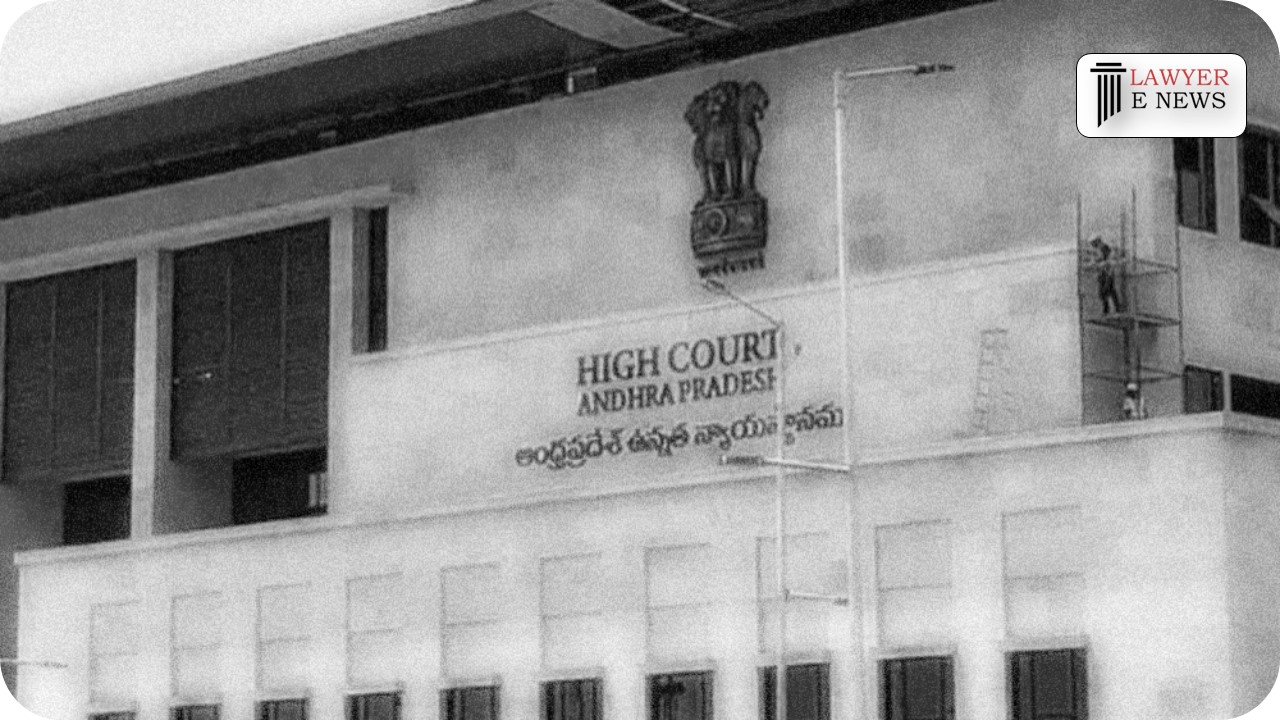-
by Admin
15 February 2026 5:35 AM



The Andhra Pradesh High Court, in a landmark judgment dated May 10, 2024, dismissed arbitration applications seeking an extension of the arbitral tribunal’s mandate under Section 29A of the Arbitration and Conciliation Act, 1996. The bench, comprising Chief Justice Dhiraj Singh Thakur and Justice A.V. Sesha Sai, ruled that such applications are not maintainable before the High Court, emphasizing that the Principal Civil Courts hold the requisite jurisdiction in these matters.
Background: The dispute arose within the NRI Academy of Sciences Society, a medical education and healthcare institution registered under the Andhra Pradesh Societies Registration Act, 2001. Disagreements among the Society’s members regarding management led to arbitration proceedings, with applications subsequently filed to extend the arbitral tribunal’s mandate. These applications, however, were contested on jurisdictional grounds, leading to the current judgment.
Court Observations and Views:
Jurisdictional Challenge – High Court vs. Principal Civil Court: The court examined whether applications for extending the mandate of an arbitral tribunal under Section 29A could be maintained before the High Court. The bench held that such applications are not maintainable before the High Court since it is not a “Court” as defined under Section 2(1)€ of the Act, which refers to the Principal Civil Court of original jurisdiction in a district.
Maintainability Under Section 29A: The court highlighted that the power to extend the mandate of the arbitral tribunal under Section 29A lies with the Principal Civil Court of original jurisdiction unless the High Court exercises original civil jurisdiction in such matters. As the Andhra Pradesh High Court does not exercise original civil jurisdiction, the applications should have been filed before the Principal Civil Court.
Function of the Court Post-Arbitrator Appointment: The court emphasized that once an arbitrator is appointed under Section 11 of the Act, the appointing court becomes functus officio. Therefore, any subsequent application for extending the mandate of the arbitrator must be made to the Principal Civil Court of original jurisdiction.
Definition of “Court”: The judgment extensively discussed the definition of “Court” under Section 2(1)€ of the Arbitration and Conciliation Act, 1996. The court noted, “In the case of an arbitration other than international commercial arbitration, ‘Court’ refers to the Principal Civil Court of original jurisdiction in a district, and includes the High Court in exercise of its ordinary original civil jurisdiction, having jurisdiction to decide the questions forming the subject-matter of the arbitration if the same had been the subject-matter of a suit.”
Prior Case References:
The bench referred to several cases to substantiate its reasoning, including:
M/s. K.V. Ramana Reddy vs. Rasthriya Ispat Nigam Limited (MANU/AP/0766/2018)
Nilesh Ramanabhai Patel vs. Bhanubhai Ramanbhai Patel (MANU/GJ/1549/2018)
Cabra Instalaciones Y. Servicios vs. Maharashtra State Electricity Distribution Company Limited (2019 SCC OnLine Bom 1437)
These cases reinforced the principle that applications under Section 29A must be moved before the Court having authority under Section 11 of the Act.
Chief Justice Dhiraj Singh Thakur remarked, “The definition of ‘Court’ under Section 2(1)€ is exhaustive and recognizes only the Principal Civil Court of original jurisdiction in a district or a High Court having original civil jurisdiction. This court does not have original jurisdiction in this context and hence cannot entertain these applications.”
Decision: The High Court’s dismissal of the arbitration applications underscores the jurisdictional boundaries defined in the Arbitration and Conciliation Act, 1996. By affirming that such applications should be directed to the Principal Civil Court of original jurisdiction, the judgment provides clarity on the procedural aspects of extending the mandate of arbitral tribunals. This decision reinforces the legal framework governing arbitration in India and ensures adherence to statutory definitions and jurisdictional mandates.
Date of Decision: 10th May 2024
Dr. V. V. Subbarao VS Dr. Appa Rao Mukkamala
